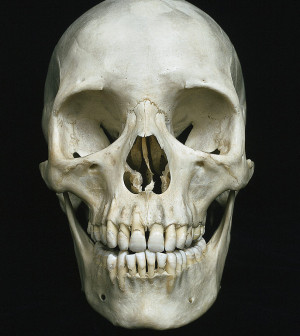- 8 Ways to Increase Dopamine Naturally
- 7 Best Breads for Maintaining Stable Blood Sugar
- Gelatin vs. Collagen: Which is Best for Skin, Nails, and Joints?
- The Long-Term Effects of Daily Turmeric Supplements on Liver Health
- Could Your Grocery Store Meat Be Causing Recurring UTIs?
- Are You Making This Expensive Thermostat Error This Winter?
- Recognizing the Signs of Hypothyroidism
- 10 Strategies to Overcome Insomnia
- Could Artificial Sweeteners Be Aging the Brain Faster?
- Techniques for Soothing Your Nervous System
Bones Benefit From Exercise After Breast Cancer, Study Finds


Exercise can provide older breast cancer survivors with lasting benefits that keep their bones strong and help prevent fractures, a new study suggests.
Breast cancer treatment is associated with the loss of bone density and lean body mass, along with increases in body fat. Exercise is one way to combat the side effects and long-term impacts of cancer treatment, according to the study published Dec. 9 in the Journal of Cancer Survivorship.
“Exercise programs aimed at improving musculoskeletal health should be considered in the long-term care plan for breast cancer survivors,” study lead author Jessica Dobek, of the Oregon Health and Science University, said in a journal news release.
“Though further work is needed, our results may provide a beginning knowledge about the type, volume and length of exercise training needed to preserve bone health among long-term cancer survivors at risk of fracture,” she added.
Researchers conducted follow-up assessments of 44 older breast cancer survivors a year after they completed a year-long program of resistance and impact training that helped build muscle strength and stopped bone loss.
Some of the women continued to work out after the program, although at a lower level, the study authors noted, while others stopped exercising.
The investigators measured the women’s bone mineral density in the hip and spine, muscle and fat levels, and maximum upper and lower body strength. The results showed that bone mineral density could be maintained even after the women stopped their formal exercise training.
However, muscle strength decreased more quickly than bone density. Therefore, these patients may require continued participation in a supervised exercise program in order to sustain muscle strength, the researchers noted.
More information
The Hormone Health Network has more about breast cancer and bone loss.
Source: HealthDay
Copyright © 2026 HealthDay. All rights reserved.










